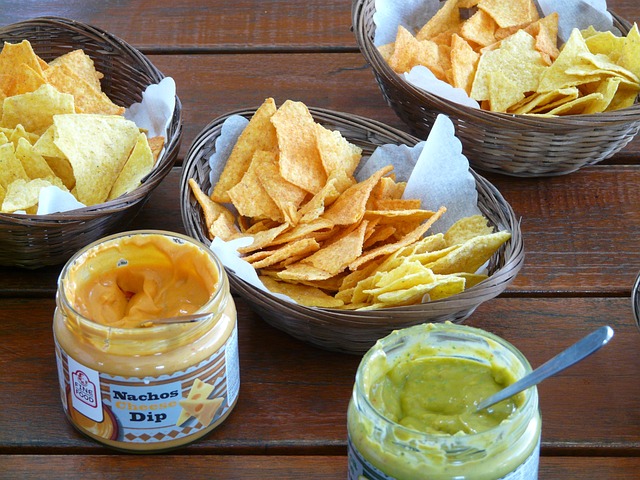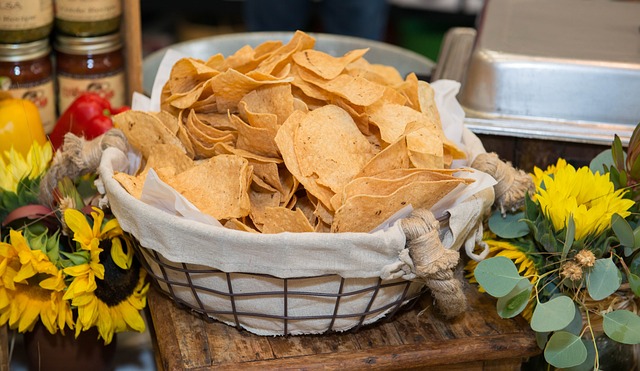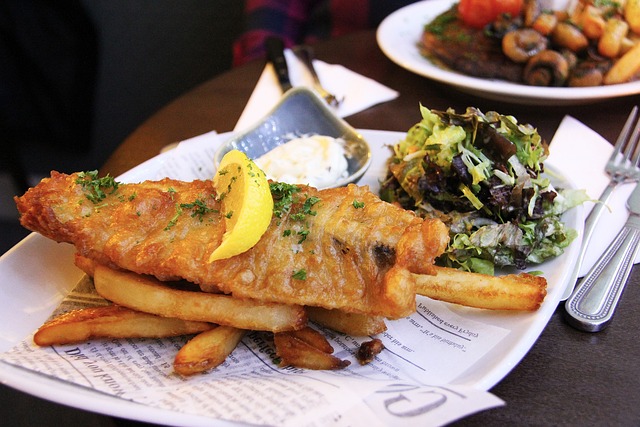In recent years, Mexican markets have seen a shift from mass-produced tortilla chips to artisanal alternatives, celebrating regional flavors and preserving traditional methods. Artisanal chip makers use ancient techniques and local ingredients, creating unique varieties like Oaxaca's crisp thin chips or Baja California's lightly salted options. This trend enhances culinary diversity, supports local producers, and keeps traditional food-making skills vibrant in modern markets. Donkey-shaped tortilla chips offer a charming example of this trend, combining high-quality ingredients with whimsical design to reflect Mexico's rich heritage. Despite urbanization, traditional markets featuring artisanal goods continue to thrive among locals and tourists alike, blending old-world charm with contemporary flavors.
Discover the vibrant world of Mexican markets, where artisanal tortilla chips are transforming snacking. This trend, from traditional roots to modern day, features unique donkey-shaped treats and a rich history dating back centuries. Learn about the rise of these handcrafted chips, their basic yet complex ingredients, and how to source authentic varieties. We’ll explore health benefits, nutritional information, and creative ways to incorporate these delightful Mexican artisanal chips into your diet.
- The Rise of Artisanal Tortilla Chips in Mexican Markets
- Basic Tortilla Chips: A Simple Ingredient with Complex History
- Donkey-Shaped Chips: Unique and Colorful Treats
- Traditional vs. Modern Market Trends in Mexico
The Rise of Artisanal Tortilla Chips in Mexican Markets

In recent years, the basic tortilla chip has undergone a remarkable transformation in Mexican markets, evolving from a simple side dish to a sought-after artisanal delight. This shift is largely driven by a growing consumer preference for authentic, locally sourced products and a desire to support small-scale producers who preserve traditional food-making methods. The once ubiquitous Donkey-brand tortilla chips, known for their mass-produced consistency, are being supplanted by hand-crafted alternatives that highlight the diverse regional flavors of Mexico.
Artisanal tortilla chip makers across the country are embracing ancient techniques and locally sourced ingredients to create unique products that reflect their cultural heritage. From the crisp, thin chips of Oaxaca to the lightly salted varieties of Baja California, these chips offer a sensory experience that goes beyond the uniform taste of commercial brands. The rise of artisanal tortilla chips not only enriches Mexico’s culinary landscape but also fosters economic opportunities for local producers, ensuring that traditional food-making skills remain vibrant and relevant in the modern market.
Basic Tortilla Chips: A Simple Ingredient with Complex History

The humble tortilla chip, a beloved snack worldwide, has its roots in Mexico, where it began as a simple yet flavorful side dish. Basic Tortilla Chips, often made from corn tortillas, represent a centuries-old culinary tradition. This seemingly ordinary ingredient has an intricate history intertwined with Mexican culture and the donkey’s role in agriculture.
Donkeys have played a significant part in Mexican farming, traditionally used to transport goods, including agricultural produce like corn. The corn tortilla, a staple food in Mexico, became more accessible due to these hardworking animals. Over time, leftover tortillas would be fried to create crispy chips, a way to repurpose and preserve this staple food. This simple yet ingenious practice has evolved into a beloved snack enjoyed globally, showcasing how a basic ingredient can have an extraordinary journey.
Donkey-Shaped Chips: Unique and Colorful Treats

In Mexican markets, one of the most unique and captivating treats you’ll stumble upon are donkey-shaped tortilla chips. These aren’t your typical, flat Basic Tortilla Chips; they’re crafted with care and creativity, taking on the endearing form of donkeys. Each chip is carefully molded to resemble these beloved animals, adding a whimsical touch to the classic snack. Not only do they offer a fun visual experience, but they also provide a delightful taste that’s hard to resist.
The Donkey-Shaped Chips are a testament to Mexico’s rich culinary heritage and its love for artistic expression in food. Artisans carefully select high-quality ingredients to ensure every chip is crispy and flavorful. Whether you’re a local or a tourist, these colorful treats make for an enchanting snack experience, offering a delightful interplay of texture and taste that sets them apart from their more ordinary counterparts.
Traditional vs. Modern Market Trends in Mexico

In Mexico, traditional markets have long been a vital part of the country’s cultural landscape, offering a diverse array of local produce and artisanal goods. Among these, Basic Tortilla Chips made by donkeys have become a unique and beloved specialty. These chips, crafted with centuries-old techniques, are not just a snack but a symbol of Mexico’s rich culinary heritage. They represent a blend of modern authenticity and traditional craftsmanship, appealing to both locals and tourists alike.
However, in recent years, Mexico has also witnessed the rise of modern market trends, driven by urbanization and global influences. While traditional markets still thrive, there’s a growing demand for innovative products and experiences. Artisans like those making Basic Tortilla Chips are adapting their techniques to meet this new demand, blending old-world charm with contemporary flavors. This evolution ensures that Mexico’s artisanal traditions remain relevant and appealing in the 21st century.
The artisanal tortilla chip has emerged as a dynamic part of Mexico’s culinary landscape, combining tradition with innovation. From basic tortilla chips with a rich historical background to unique donkey-shaped varieties, these crispy treats cater to diverse tastes. As Mexican markets embrace modern trends while preserving traditional crafts, the demand for artisanal tortilla chips continues to grow, offering both locals and tourists a delightful snack experience that showcases the country’s vibrant food culture.
